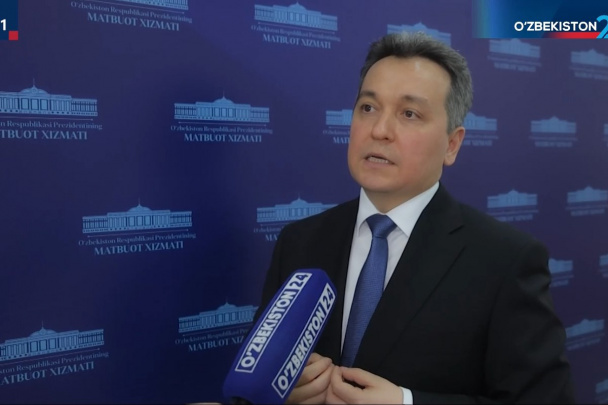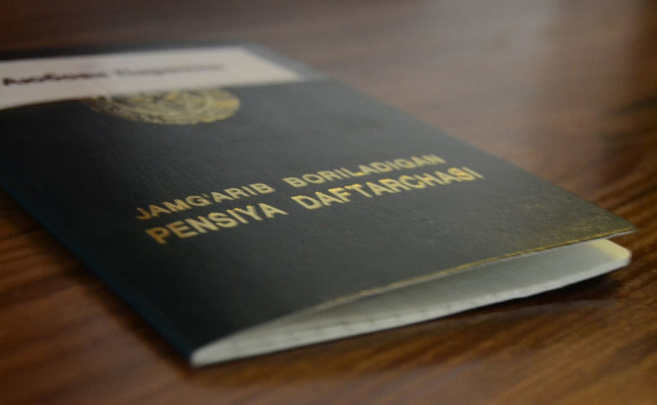Uzbekistan losing up to $4.5 billion annually due to data localization law — Analysis
Uzbekistan’s requirement to store personal data locally is inflicting significant economic damage, costing the country up to $4.5 billion per year, according to an analysis conducted by Kotib AI Research.
The report highlights that Uzbekistan remains the only country in Central Asia where PayPal is not available, citing Article 271 of the Law "On Personal Data" as the primary reason. Under this article, personal data of Uzbek citizens must be stored within the country’s borders. This means that international companies wishing to operate in Uzbekistan must establish local data centers, build specific communication infrastructure, hire local staff, and comply with national certification requirements – investments that can cost tens of millions of dollars.
“Given the relatively small size of Uzbekistan’s market, many global companies choose not to enter it at all,” the report notes. “This leads not only to a lack of convenience for consumers but also to direct financial losses. Due to the absence of PayPal alone, Uzbekistan missed out on at least $1.8 billion in revenue over the past five years. More broadly, the data localization requirement causes an estimated annual loss of $3.2 to $4.5 billion, equivalent to 4–5.7% of the country’s GDP. The hardest-hit sectors include e-commerce, banking, IT, startups, and fintech.”
The report underscores that a single vague and poorly constructed article in the law is deterring substantial foreign investment. Tech giants such as PayPal, Stripe, Netflix, Spotify, Amazon Web Services, and Microsoft Azure are absent from the Uzbek market. Even Google Pay and Apple Pay are only partially functional.
The restriction is also stifling the development of fintech, IT, and startup ecosystems, the report argues. Export opportunities are shrinking due to the lack of electronic payment systems and essential digital services. The growth of AI and digital services is also slowing.
“Without international payment systems, Uzbekistan is losing between $500 million and $800 million annually. If digital payment services were fully operational, GDP growth could increase by billions of dollars a year,” the analysis states.
A barrier to artificial intelligence and digital growth
The report concludes that the law poses a serious obstacle to the development of artificial intelligence (AI) in Uzbekistan. This is because many AI technologies rely on cloud servers, APIs, and international platforms, which are effectively restricted under the law. As a result, foreign investors are staying away, startups are stagnating, and the digital market is failing to progress.
Uzbekistan significantly lags behind neighboring countries in terms of digital economy development, cloud technology adoption, and attracting international tech companies.
“A strange and confusing law”
On May 28, 2021, Twitter’s activity in Uzbekistan was restricted under the same data law. The block was lifted on August 1, 2022. TikTok, however, has remained inaccessible since being blocked on June 26, 2021. Similar restrictions were imposed on Telegram, YouTube, Instagram, Facebook, and Odnoklassniki, though public backlash led to most platforms being unblocked.
At the time, political analyst Kamoliddin Rabbimov noted the inconsistency, pointing out that no social network had fully complied with Article 271, yet Twitter and TikTok remained blocked while others were not.
“No one has brought the required databases into Uzbekistan – and they never will,” he said. “Technically, it’s impossible to store only Uzbek users’ data on a separate local server. A single server can’t isolate national user traffic, and a power outage could wipe all information. There are technical, technological, and legal issues. No one is forcing users onto these platforms,” he added.
Rasul Kusherbayev, a former MP of the Legislative Chamber, echoed similar concerns. He questioned the double standards in the application of the law, asking why some networks remained operational while others were blocked, despite none of them complying.
“I believed the amendment enabling the blocking of social networks was unconstitutional and told other MPs to vote against it. Unfortunately, under various influences, the law was passed,” Kusherbayev said.
Economist Abdulla Abduqodirov emphasized that blocking social networks erodes the confidence of foreign investors.
“We have a personal data law, but unfortunately it’s copied from the Russian Federation. It wasn’t publicly debated, and feedback was ignored. It’s a strange and unclear law that should be abolished. The norms it contains are unacceptable to any self-respecting global platform – be it Facebook, Twitter, or TikTok. These companies serve billions globally, and Uzbekistan’s population of 35 million alone is not enough to justify such costly compliance,” he argued.
Uncertain future
Debates over the law have persisted since its adoption, but no revisions or timeline for reform of the controversial article have been announced.
The analysis also indicates that monetization on YouTube in Uzbekistan is hindered by Article 271. If the platform were enabled to run ads in the country, local ad market volume would increase significantly, creating both revenue and jobs. In 2024, Uzbekistan’s advertising market was valued at 2.1 trillion UZS, with 29% coming from digital ads.
Related News

12:59 / 15.07.2025
Government moves to digitize vehicle retrieval process from impound lots

14:57 / 03.07.2025
Uzbekistan to enable paid government services via banking and payment apps

13:14 / 02.07.2025
No change: Drivers must carry original documents despite digital shift

13:09 / 01.07.2025



